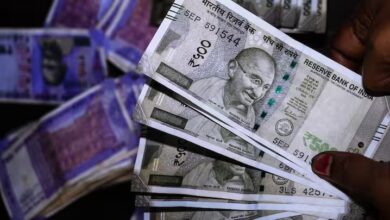India Inc. may return to electoral trusts, but analysts predict that concerns about transparency will persist
The Supreme Court’s decision to reject the electoral bonds system may cause corporate contributions to political parties to somewhat decline, but Indian businesses may go back to electoral trusts, according to analysts and attorneys.
Electoral trusts, according to attorneys, enable businesses to give to political parties while remaining, at least seen, at a safe remove. This is so because trusts are legally meant to be separate entities from the businesses that establish them. The establishment of electoral trusts, which facilitate the pooling of money and let many organizations or entities to make political donations via a single trust, was permitted by the United Progressive Alliance administration in 2013.
There are 18 electoral trusts in India, according to statistics from the Election Commission of India (ECI), some of which include substantial business entities as major funders.
“After the electoral bond scheme was unveiled, many wondered if the trusts created for political funding would be relevant any longer,” a source at the Progressive Electoral Trust, which is funded by the Tata Group, said. They were still relevant, however. The trusts provide money to political parties using a formula-based system. Every Tata company makes a donation to our trust, and the money is disbursed according to the parties’ representation in parliament.
The trusts must keep track of counterfoils containing information on contributors, including their name and PAN number. Sanjeev Kumar, a partner at Luthra & Luthra, said that as a result, they are more transparent than electoral bonds.
The majority of those FE talked with, however, said that it may still be difficult to determine who gave how much to each beneficiary party in the event that a trust made several donations to different parties. This is because the audit and contribution reports are not made available to the public.
Therefore, unless the systemic flaws are fixed, the widespread use of unexplained monies to pay for illegitimate “political expenses” may continue, according to sources.
They also want a strong, open framework for distributing and pooling election cash.
The corporations Act, 2013, which stipulates that only profitable corporations are permitted to make political contributions, was maintained by the supreme court notwithstanding its ruling that electoral bonds are “unconstitutional.” Businesses and corporations would find it somewhat harder to conceal their contributions to the political parties of their choosing as a result, but they may still figure out how to move the money without leaving a trace, the sources added.
Companies’ donations to political parties are limited to 7.5% of their average earnings over the previous three fiscal years, under section 182(1) of the Companies Act. Because electoral bonds entailed anonymity, they essentially permitted businesses to exceed this restriction, which is quite permissive if one considers the Election Commission’s authorized ceiling on election costs. Manmeet Kaur, a partner at Karanjawala & Co., said that “the SC judgement has removed the provision for unlimited political contribution by even loss-making companies.”
Political parties are allowed to collect funds under the Representation of Peoples Act (RoPA), however any donation above Rs. 20,000 must be declared in order for the party to be eligible for tax exemption under the Income Tax Act.
InGovern Research Services’ founder, Shriram Subramanian, stated: “The disclosure of corporate names (post-SC ruling) will be unfortunate and damaging.” Businesses might avoid disclosure by working with middlemen who would donate to political parties.
According to a study published by the Association for Democratic Reforms (ADR), national political parties earned little more than Rs 850 crore in total in FY23 from contributions over Rs 20,000. This amount is much less than the revenues that political parties got via electoral bonds. 12,167 of these gifts were made throughout the year.
The Communist Party of India (M), the Aam Aadmi Party, the Congress, and the National People’s Party (NPEP) together got Rs 130.6 crore of the total monies collected via stated donations over Rs 20,000, with the BJP receiving Rs 719.9 crore. By way of electoral bonds, the Congress got Rs 1,123.29 crore, while the BJP collected Rs 6,566.11 crore till the end of FY23.







